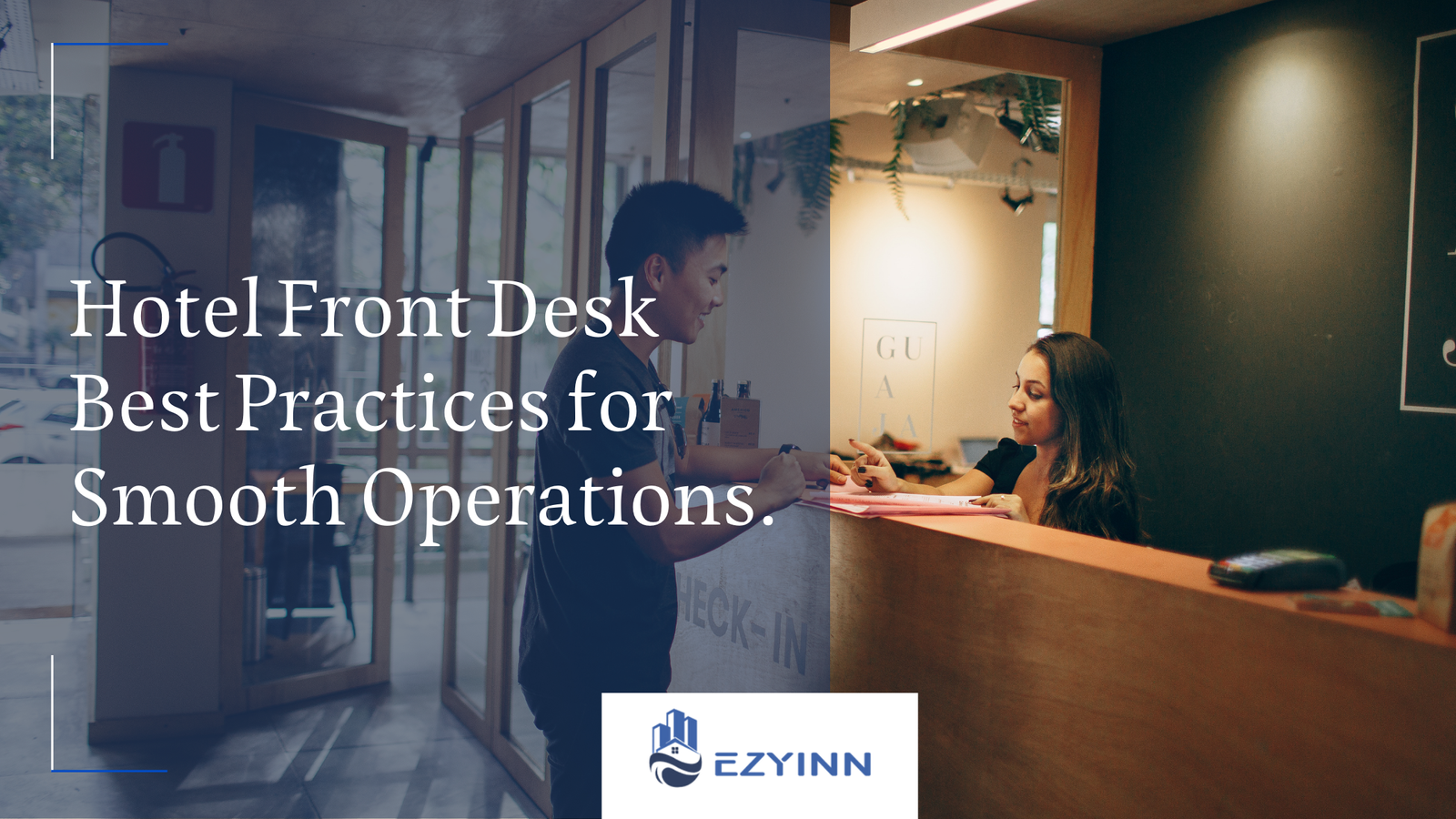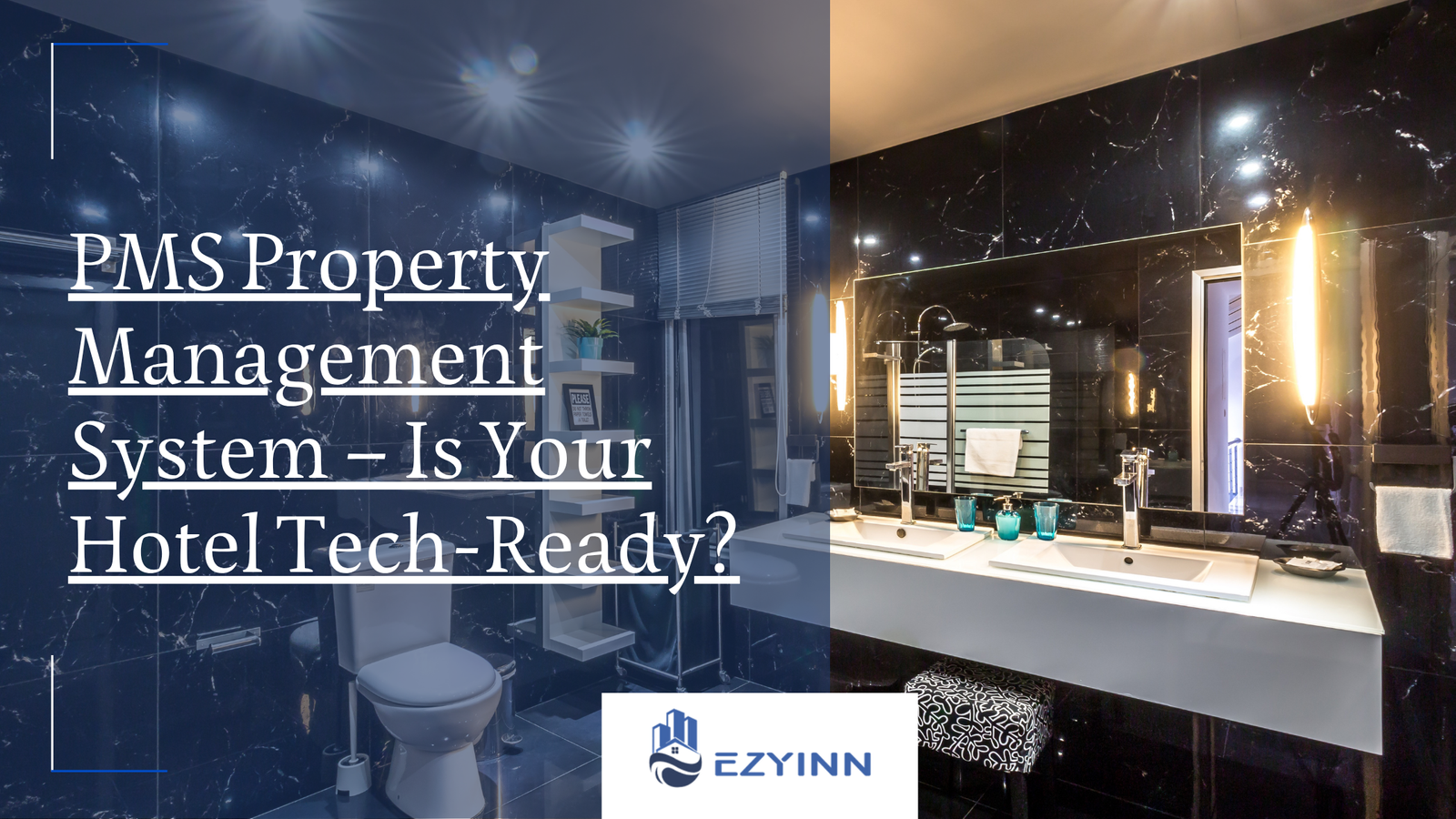Every hotel’s front desk is the main guest contact point. Welcome guests, make reservations, answer billing questions, and address local issues at this central hub. A smooth and memorable guest experience requires front desk efficiency to ensure every interaction is beneficial. Hotel reservation system service is more crucial than ever in the competitive hotel market. A well-run front desk can improve guest satisfaction, loyalty, and efficiency. Professional front desk management streamlines routine tasks and allows for personalized service. Best practices can help hotels reduce wait times, create a friendly atmosphere, and serve guests quickly. In this article, we will delve into the best practices for efficient hotel front desk operations.
What are the Best Practices for Efficient Hotel Front Desk Operations?
A hotel front desk performance depends on front desk efficiency, which affects reviews and repeat visits. New technologies, clear communication, and training and development can help hotels achieve their operational goals and stand out. Let’s discuss hotel front desk optimization best practices to help hotels provide a great guest experience.
- Great Client Service: Hotel front desks thrive on customer service. All front desk staff should learn courtesy and professionalism. Meet guests by name and make them feel special. Make guest interactions memorable with a smile. Greet clients with a grin and pleasant mood – Address guests by name whenever possible – Be kind, helpful, and professional
- Effective check-in/out: Check-in and check-out must be streamlined to reduce wait times and improve client satisfaction. Technology, good processes, and personnel training can speed up and increase task completion. To boost efficiency, deploy mobile check-in and self-service kiosks, train staff to manage check-ins and check-outs, and keep all paperwork and information readily available.
- Communicate clearly: Hotel Front desk efficiency demands clear communication. Front desk staff should interact with guests, hotel staff, and management. This includes providing clear directions, resolving queries immediately, and informing everyone of big changes. Give consumers clear directions, address problems and issues swiftly, and notify hotel workers and management of key changes.
- Use Tech: Hotel Front desk productivity can be boosted utilizing technology. Modern software may automate numerous jobs, eliminate human error, and expose guest preferences and behavior. Consider implementing hotel management software to track visitor preferences and mobile check-in/check-out to boost operations.
- Development and Training: High service and efficiency requirements require ongoing training. Front desk hotel management software staff needs frequent customer service, hotel policy, and technological training.
- Effective Problem-Solving: Front desk hotel management software workers should be taught to resolve visitor complaints rapidly. That involves problem-solving and client satisfaction. Enable personnel to address problems rapidly and teach them in problem-solving. Enquire about guest satisfaction.
- Customization: Guest happiness and loyalty grow with customization. Front desk workers should meet visitor preferences and special requirements. Note guest preferences and requests. Customize visitor experiences using hotel front desk software.
- Time Management: Effective front desk operations involve structure and time management. Workers must prioritize, manage time, and arrange for smooth operations. Important and urgent work should be prioritized. Manage time using tools and strategies
- Effective Teamwork: Front desk productivity requires teamwork. Front desk staff should cooperate with housekeeping, maintenance, and food & beverage to satisfy guests. Coordinate for a smooth guest experience
- Regular Feedback and Improvement: Effective front desk operations require ongoing feedback and development. Staff feedback on processes and procedures should be used to enhance them by management. Encourage worker feedback on processes and procedures – Implement improvements based on feedback – Analyze and update front desk procedures regularly
- Managing Guest Expectations: Manage guest expectations to avoid misunderstandings and ensure satisfaction. Front desk workers should explain hotel policies, services, and restrictions. Hotel policies and services should be clear.
- Emergency Preparedness: Prepare front desk workers for surprises. This includes emergency procedures, problem-solving, and calm, effective guest service. Train workers on emergency protocols, provide emergency contact information, and be calm and efficient
- Act Professionally: The front desk is the guests’ first encounter, thus professionalism is crucial. Front desk employees should dress professionally and clean their environment. Dress professionally and clean the front desk. Present yourself professionally.
- Guest Relationship Building: Good guest relations boost retention. Guest choices should be remembered and respected by front desk staff. Guest engagement, preference recall, and respect and gratitude are key.
- Performance Assessment: Performance metrics boost front desk operations and track effectiveness. Guest satisfaction, check-in/check-out timeframes, and complaint handling are KPIs. To improve front desk operations, measure efficacy with key performance measures, identify areas for improvement with performance data, and execute improvements.
Conclusion
Property Management System must be efficient to satisfy guests. Best practices may streamline front desk operations, improve service, and make hotels more pleasant and efficient. Front desk training, technology, and development will streamline hotel front desk operations. At Ezyinn Technologies, we offer the best cloud based hotel PMS to meet all your business needs. Contact us today at +1 (408) 715-3635 to experience robust cloud based PMS system.









